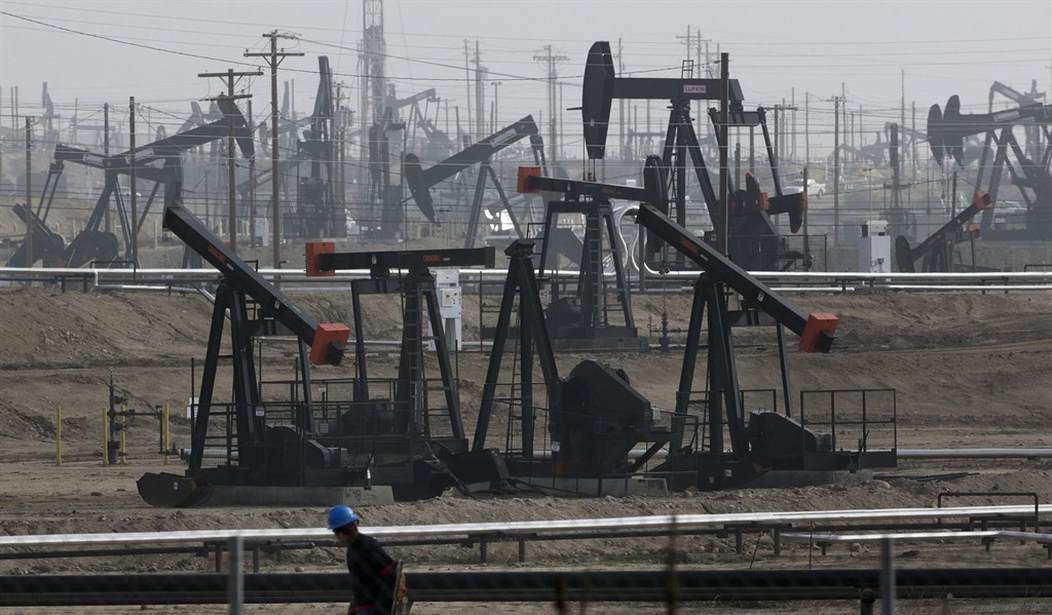The California legislature has approved a bill that would penalize oil companies for charging high prices for gasoline. Regulators in the state will now have the power to punish oil companies for profiting from spikes in gas prices like the ones that occurred last summer during Biden’s inflationary spiral.
Essentially, California wants to prove that all those conspiracy theories about oil companies are true and they really are a bunch of evil, greedy, price-gouging capitalists.
Either the state will succeed in proving that, or the conspiracy theories about why gas prices go through the roof are nonsense and the bill will lead to shortages and even rationing.
Related: A Tale of Two States: the Contrasting Fiscal Fortunes of Texas and California
Initially, Democrats in the state thought about imposing a new tax on “excess profits.” But this was in the midst of the prices spiking last summer and Democrats feared that the oil companies would do something business-like and pass the tax on to consumers.
It’s not so much the penalty that makes this bill problematic. The legislation would require oil companies to turn over reams of information to a brand-new state agency empowered to monitor and investigate the oil market and have the power to subpoena oil company executives.
“If we force folks to turn over this information, I actually don’t believe we’ll ever need a penalty because the fact that they have to tell us what’s going on will stop them from gouging our consumers,” said Assemblymember Rebecca Bauer-Kahan, a Democrat from Orinda.
With magical thinking like that, what could go wrong?
California’s gas prices are always higher than the rest of the country because of the state’s taxes and regulations. California has the second-highest gas tax in the country at 54 cents per gallon. And it requires a special blend of gasoline that is better for the environment but more expensive to produce.
But state regulators say those taxes and fees aren’t enough to explain last summer, when the average cost of a gallon of gasoline in California was more than $2.60 higher than the national average.
“There’s truly no other explanation for these historically high prices other than greed,” said Assemblymember Pilar Schiavo, a Democrat from Chatsworth. “The problem is we don’t have the information that we need to prove this, and we don’t have the ability to penalize the kind of historic price gouging we saw last year.”
Yes, there are other explanations other than greed, so please don’t be perplexed when your constituents are screaming for more gas.
If the oil companies were truly price gouging then they must be committing the even more serious crime of collusion. If not, why wouldn’t one company undercut other companies and sell their fuel for significantly less? If companies are “gouging” the consumer, there must be a big difference between what the fuel actually costs the company and what they’re selling it for. Are the oil companies colluding to keep the price high?
It’s not impossible, but far more likely would be differences in local, state, and regional availability. California’s byzantine regulations for winter and summer fuel mixes, transport costs, and other green rules make getting gasoline to the pump too expensive.
Opponents think consumers are going to be hurt nonetheless. Assembly Republican leader Jim Gallagher of Yuba City foresees high costs for the oil companies to meet the regulations, and predicts there could be fuel shortages, rationing and price spikes.
Kevin Slagle, of Western State Petroleum Association, an industry lobby group, said some companies may decide it does not make sense to continue to do business in California, despite the state representing the nation’s biggest market.
“The governor calls it (the bill) historic. We call it a dangerous experiment with the fuel market in the state,” said Slagle.
A new regulatory agency that will do nothing, produce no oil or gas, and force companies to reveal proprietary information (does anyone really believe it will be kept private?) and be subject to the whims and subjective interpretations of their business practices by bureaucrats will “protect” consumers?
Good luck with that.










Join the conversation as a VIP Member